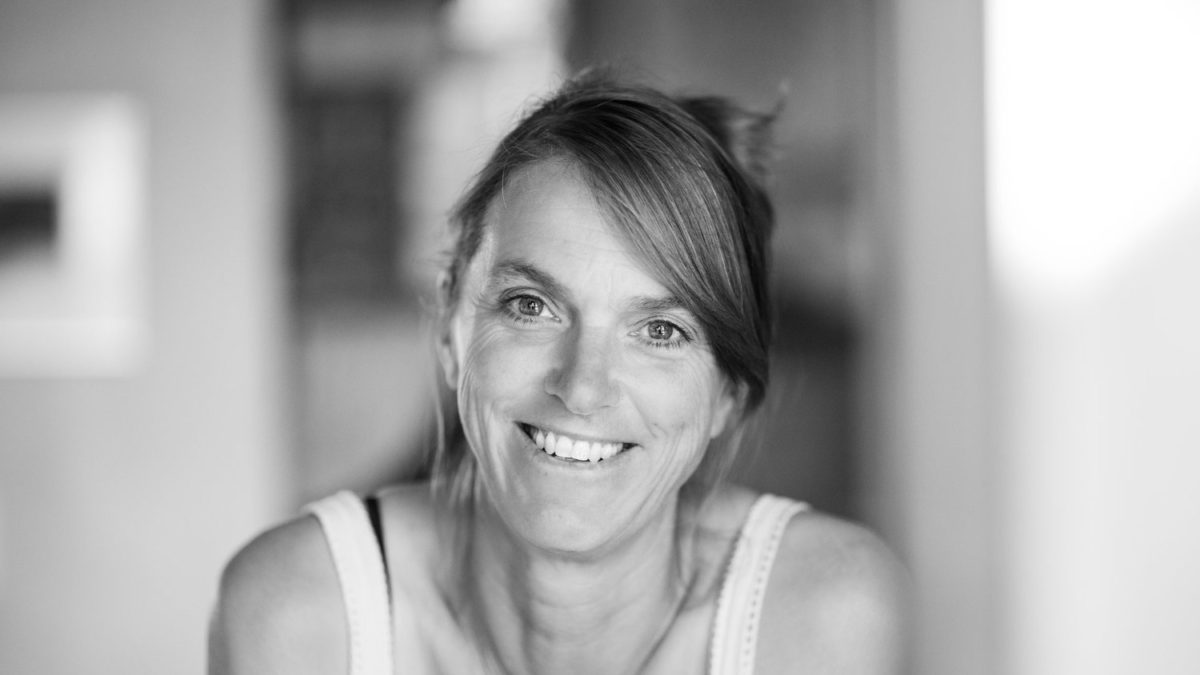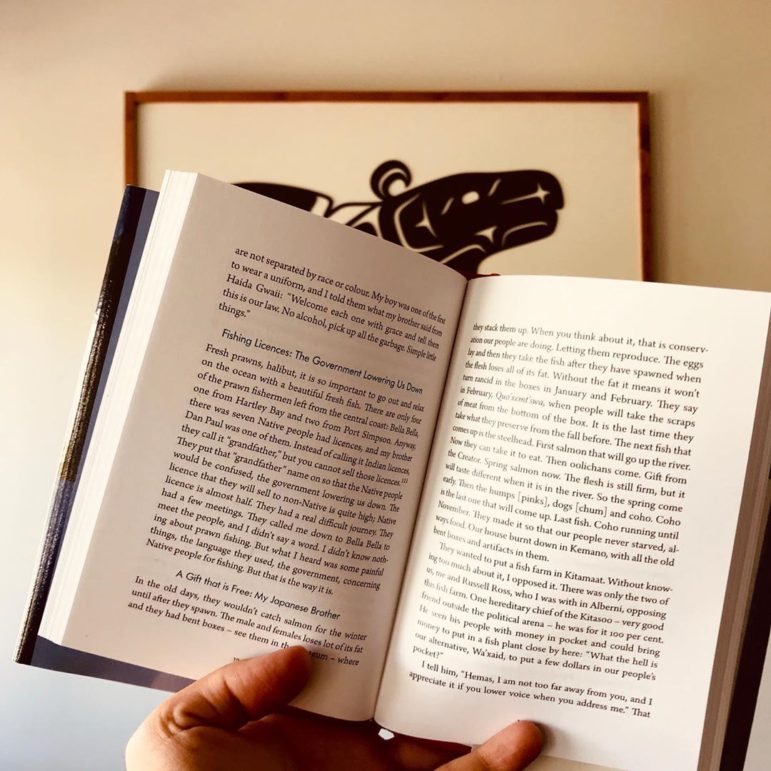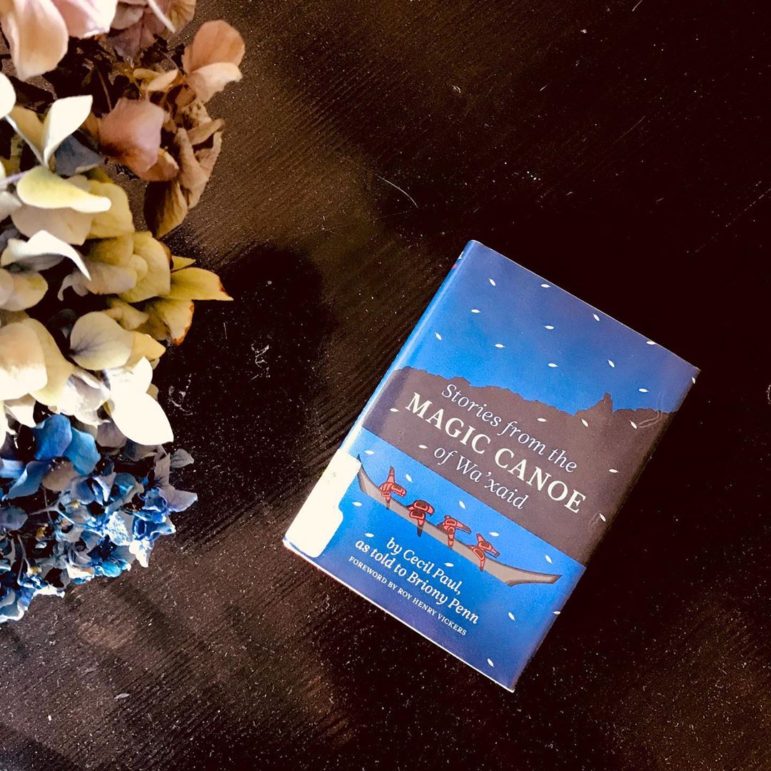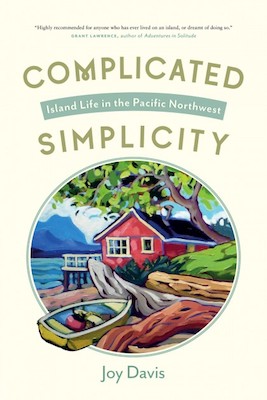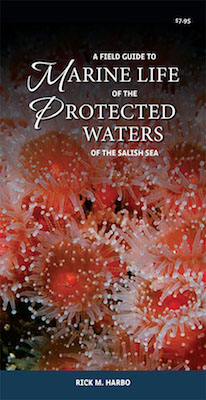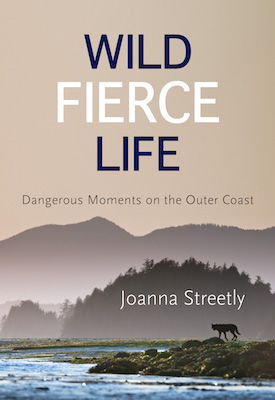Briony Penn is an award-winning writer of creative non-fiction books as well as a contributor to many anthologies and chapter books. Her first book, A Year on the Wild Side: A West Coast Naturalist’s Almanac (1997) was re-released by Touchwood Editions this year and became a BC Bestseller at the same time as Stories from the Magic Canoe of Wa’xaid (2019), a book she co-authored from the stories and wisdom of Wa’xaid (Cecil Paul) an Xenaksiala elder, published by Rocky Mountain Books.
What follows is a series of quotes from our interview with Briony Penn with further context, storytelling, and an abundance of truth from this accomplished writer, illustrator, and activist.
“I’ve been writing stories and drawing pictures since I can remember. And I went and got a PhD so I could do the things I wanted to do when I was little, like save the birds. I think the first thing I wrote, it was when I was four years old, it was about warning the flowers about the sun burning them up.”
Briony Penn comes from a long line of eccentric artists, who originally settled in the Southern Gulf Islands five generations ago. Her family has always been in the tradition of natural history writing, even claiming to have friendly connections with Charles Darwin, whom Western society has named the evolutionary theory after, and Thomas Henry Huxley (known as “Darwin’s Bulldog”). Penn grew up between Salt Spring Island and Victoria and wrote mostly for Monday magazine and Focus magazine. Speaking to her long career in writing, Penn comments,
“I’ve gone through a lot of editors and publishers—but I’m really grateful—when you’re writing for magazines and columns. I would have loved to have had that kind of time to be poetic, but in that case I would’ve reached a different audience, but I’m glad I reached an audience that I did. These people don’t always have the beautiful environment.”
She goes on to speak about how many readers of her columns didn’t always live in the Tourism BC tagline of #BeautifulBritishColumbia and how her words would often reach into other provinces and territories. Penn shared this rather humorous anecdote:
“I had the best best compliment, only a couple days ago, I got this letter, this woman from Calgary, which made me laugh. It said, ‘Dear Briony, Thank you for changing my life. I use to live in Calgary, worked at a boring job, in an unhappy relationship, etcetera. But after reading your words, I dumped the boyfriend, I quit my job, and I moved to Vancouver Island and I am so grateful!’ I mean, if my words give people a sense that there is something more out there—then I did my job!”
“You kinda had to duck and weave. I was phoned up at least three times from undercover agents who were asking if I were a witch—like what century are you in?”
Throughout the course of our conversation, Penn details the various scenarios in her career where, she asserts, corporations linked to oil, mining, and gas effectively derailed the kind of writing and activism she sought to accomplish. During three years of her life, Penn worked in television before the private company got bought out by a multinational and Penn describes being “frog-marched out with all the other people doing environment and natural history.”
Nevertheless, Penn takes comfort in various success stories including her work with Canadian marine biologist, Bert Webber, who helped popularize “Salish Sea” as the name of the bodies of water on both sides of the Canadian and American border that British Columbians typically refer to as the Strait of Georgia.
“I met someone who said, ‘after I read Cecil’s book, I realized we should be calling it genocide.’ And that’s the best testimony I could get for this book.”
Penn’s most recent literary contribution is in acting as the “pen” for the stories of Wa’xaid (Cecil Paul) in Stories from the Magic Canoe of Wa’xaid. When asked about the BC Bestseller success of the book, Penn comments, “It was a coincidence that they came out at the same time. I’m super, super proud of Cecil’s achievements. He’s 90 now. His sister Louisa was trained to read after the residential schools. She helped with all the proofreading. I just think it’s a wonderful teaching document for anyone who really wants to understand what went on in the last 100 years, on a personal level.”
Working closely and intimately with Paul to get his stories on paper in the way he wanted them was very important to Penn. She goes on to say, “Cecil wanted to do this book, he felt if people could really see his life and the effects of a century, they would be changed. Him and his sisters are the last speakers of his language. The book has to do with genocide. His culture has a lot of teachings relevant to what’s going on now. His people are survivors and will continue to survive. It’s a beautiful story of forgiveness, mixed in with humour and grace.”
If You Like Briony Penn You’ll Like…
- Wild Fierce Life: Dangerous Moments on the Outer Coast by Joanna Streetly (Caitlin Press). From a near-death experience while swimming at night to an enigmatic encounter with a cougar, these stories capture the joys and dangers of living in a wild environment. Streetly’s vivid storytelling evokes a sincere respect for nature, both its fragility and its power.
- A Field Guide to Marine Life of the Protected Waters of the Salish Sea by Rick M. Harbo (Harbour Publishing). Covering invertebrates, fish and seaweeds, this guide includes key identification features, fun facts and habitat, as well as seventy colour photographs. Water-resistant and compact, this guide is easy to pack on any trip to the shore and perfect for curious minds of all ages.
- Complicated Simplicity: Island Life in the Pacific Northwest by Joy Davis (Heritage House). Many people dream of living simple lives on small islands, but few are aware of some of the unique challenges that accompany this distinctive lifestyle. From negotiating surrounding waters to creating a sustainable home and making a viable life away from urban conveniences, small-island living can be rewarding or difficult (or both), depending on myriad circumstances.

